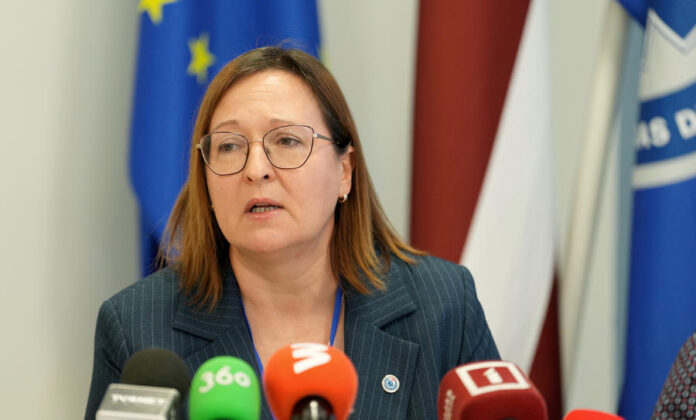Latvian Trade Union of Health and Social Care Workers (LVSADA) has commenced a collective dispute procedure by submitting to the management of Emergency Medical Service (NMPD) a request to cancel the planned changes to the service’s internal reorganisation.
According to LVSADA, the trade union invites initiating negotiations in a settlement committee. If the dispute cannot be resolved through negotiations, however, the trade union is prepared to take this issue to court.
LVSADA wants the order issued on the 1st of November by the Director of NMPD Liene Cipule to be cancelled. This order presents multiple major changes to the organisation of work done by ambulance teams, including the size of ambulance teams, the number of ambulances on duty at night, their shifts, as well as numerous other changes to contracts and contractual obligations.
LVSADA recalls that the collective agreement with the NMPD stipulates that mutual consultations on reorganization – dates, reasons, consequences and measures to be taken in relation to employees – shall take place no later than six weeks before the beginning of the reorganization. But the trade union stresses that no consultations have taken place with its representatives ever since Cipule’s order was presented.
The trade union notes that in their refusal to fulfil the submitted request, NMPD management has changed the grounds for the changes several times and argued that the changes to the work organization specified in the order from the following year “were not a sole initiative of the service and that these decisions were subordinated to the tasks given by the government and the deadlines for their implementation”.
According to the Labour Disputes Act, a collective interest dispute is a dispute between employees or employees’ representatives and an employer, employer, employers’ organization or association of such organizations, or an industry governing body, which arises in connection with the collective bargaining process when establishing new working conditions or terms of employment.
If a basis for a collective interest dispute has arisen, the party to the collective interest dispute shall submit a written application to the other party indicating its claims.
The other party to the collective interest dispute shall examine it immediately and communicate its response in writing within three days of receipt of the application. If the response to the application is negative or is not provided, the dispute shall be resolved by the Collective Dispute Resolution Committee.
If the committee is unable to resolve the dispute, the dispute is to be resolved in accordance with the collective agreement.
As previously reported, from 2025 onward, several changes in the organisation of the work of the NMPD will be implemented. For example, the workload of individual employees has been reduced, the composition of three persons in some ambulance crews has been changed to two. The working hours of individual ambulance crews will change as well, transforming them from 24-hour to day crews in places where there is less than one ambulance call during night hours.
In order to improve the quality of the assistance provided and patient safety, from next year the staff of the emergency call centre 113 of the NMPD will switch to 12-hour duty instead of the previous 24 hours, as recommended by the standards of the European Emergency Number Association (EENA). The aim of this measure is to reduce staff burnout, overload and improve the quality of call reception.
It is planned that the workplace for NMPD medics and drivers of ambulance vehicles in the future will not be a specific location, but a larger regional unit – a support centre for crews with all necessary infrastructure. Part of the regional units already function under this principle, but now it will be implemented uniformly throughout the service.
The service points out that such a decision is due to the fact that the number of calls drops significantly during night hours and, accordingly, it must also plan the required number of crews – 80% of calls are received during the day, and only 20% are received at night.
Minister of Health Hosams Abu Meri previously mentioned that these changes will not change the amount of time it takes for an ambulance to arrive. “Residents have no reason to worry that something will change, that the service will change,” he said. Nevertheless, the minister did say that the government will look to see if it is necessary to add any changes to any Latvian city.
Commenting on the planned changes, Liene Cipule stressed they will not affect residents or the quality and availability of services provided by NMPD.
Also read: Trump vows to impose tariffs on goods from Canada, China and Mexico; judge drops Trump’s criminal cases
Follow us on Facebook and X!
Source link : http://www.bing.com/news/apiclick.aspx?ref=FexRss&aid=&tid=6745b5c770904f088b12b492f99ca3c9&url=https%3A%2F%2Fbnn-news.com%2Flatvian-medical-trade-union-prepared-to-take-ambulance-reorganisation-issue-to-court-262824&c=2156113663382909747&mkt=de-de
Author :
Publish date : 2024-11-25 16:00:00
Copyright for syndicated content belongs to the linked Source.
